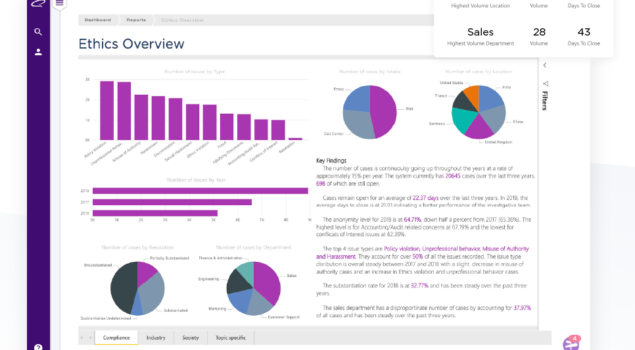
Too often, compliance and ethics is perceived as the “business prevention department.”
Given this, plus another widely-held view that compliance is “done” to employees (“I’ve got to do my compliance training”), it’s not surprising that companies are striving to make their programs more interesting and memorable with interactive compliance activities, with the result of genuine employee engagement and long-term learning and knowledge retention.
Unfortunately, this leads to employee compliance fatigue and “push-back.” However well-intended and structured, the program often fails to fully achieve the intended and necessary results. Compliance programs must break this cycle by turning compliance push into employee pull. We must give employees an answer to the question, “What’s in it for me?”
Compliance activities and campaign ideas that actually engage employees in compliance
The idea of gamifying your compliance training isn’t new—but it’s stuck around because it works. Not only is a gamified training more fun than traditional compliance activities like training videos or policy attestations, it also engages employees more deeply with your compliance principles, activating their memory centers so they will retain the information for longer.
Many compliance teams host an annual “Compliance and Ethics Week” to refresh employee awareness, re-engage employees with policies, and get them thinking about ethics in new ways. The list of games below features some great Compliance and Ethics Week ideas to gamify your trainings—but you can also use these activities as compliance campaign ideas to boost engagement with your compliance program throughout the year.
Ethics Games that will improve your compliance training, compliance campaigns, and Compliance and Ethics Week
- Ethics Game #1: Photo, Video or Poster Compliance Capture
- Ethics Game #2: The “Set-Up” Game
- Ethics Game #3: Compliance Trivia
- Ethics Game #4: The “Real or Reel” Game
- Ethics Game #5: New Ideas Competition
- Ethics Game #6: Team Competitions
- Ethics Game #7: Case Study Stories
- Ethics Game #8: Debatable Dilemmas
- Ethics Game #9: The Compliance and Ethics “Shield”
- Ethics Game #10: Compliance & Ethics Heroes
To combat pushback, effective compliance training needs to be fun, engaging, and informative. Compliance games offer the opportunity to drive interest in (and enhance the perception of) compliance and ethics training. It should also be recognized that while games can have a key role in compliance and ethics learning, they could also create an adverse perception in employees if they aren’t well thought-through.
Be sure the solutions you try mesh with culture, program goals, and employee expectations before diving in.
Ethics Game #1: Photo, Video or Poster Compliance Capture
Photo, video or poster compliance capture games are some of the most successful compliance-related games I’ve run.
The format is simple: submit a photo or
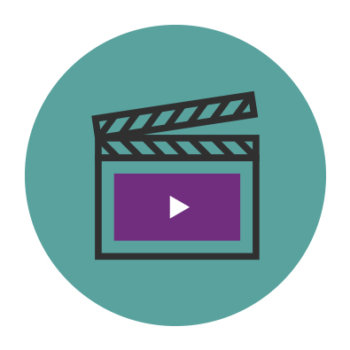
video of a compliance violation with a caption or explanation related to the issue. Produce more team entries by encouraging poster submissions, which have a variety of photos related to the same issue. Posters provide more content around a single issue in an informative poster. That’s it!
The game is open to everyone. In the case of photos, the resulting “photo wall” becomes a powerful and continuing image. You could also create an internal online “video wall” to convey the same message, and post posters publicly.
The game creates genuine company-wide interest in both the manager and employee populations, and identifies a number of compliance and ethics issues and opportunities for the compliance team to discuss further.
Ethics Game #2: The “Set-Up” Game
This compliance activity can also be called “Spot the Issue,” “Golden Ticket,” or just a good ol’ fashioned Scavenger Hunt.
Regardless of what you call it, here’s how to play:
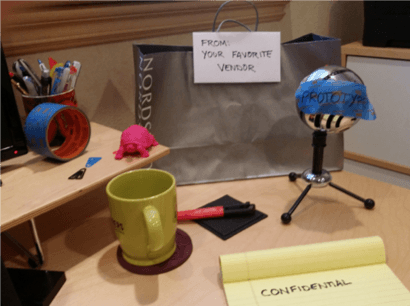
Set up a desk or multiple desks, workshops, offices, warehouses or production locations with a range of potential compliance and ethics issues. You can see an example of a set-up in the image to the right, which was originally shared by the team over at Broadcat. (Broadcat also has a great post that explains this game in more detail, which you can find here.)
Once your setup is complete, task employees with locating the breaches, either as individuals or teams.
Playing this ethics game across locations leads to more discussion as employees seek out answers to each question. To disrupt and distract as the game progresses, introduce a competitive factor – such as a tie-breaker phase – which can be very successful.
Moreover, with the success of escape rooms and “Hint Hunt,” you could also set up a compliance and ethics-themed room with potential breaches. Of course, this may not work as well in geographically diverse companies. However, you could also make this a virtual compliance activity rather than in-person.
The “Golden Ticket” concept is another variant, in which fake confidential documents are left around workspaces and their loss must be reported through the company’s recognized intake channels.
Compliance activities like this one help break down reluctance to report or engage with the employee helpline. If you’re looking for more ways to build a speak-up culture in your organization, check out our free ebook, 6 Key Steps to Raising Hotline Awareness and Improving Reporting Rates.
Ethics Game #3: Compliance Trivia
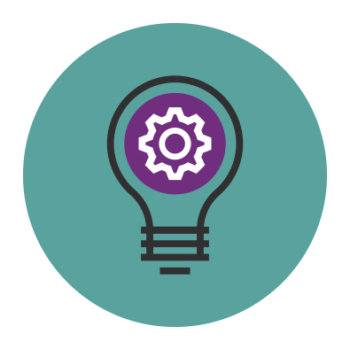
Compliance trivia is surprisingly easy to prepare. But be prepared for associated logistical challenges in communication, judging, prizes, etc. The concept is simple: a Trivial Pursuit-style game where all of the questions are related to compliance.
Increase engagement by introducing a free-form tie-breaker covering questions like, “What do you think the issue is?” and “What would you have done?”
If the idea of a completely compliance-focused game would bore your workplace, sprinkle in some other fun workplace trivia in there to spice things up. This could include questions about co-workers, or the history of the company.
Ethics Game #4: The “Real or Reel” Game
Here’s how the Real or Reel game works: Compile a list of real-life and “as seen on TV” compliance and ethics scenarios and see if respondents can spot the difference.
To get started, research the biggest compliance violations and scandals you can find (we outlined some particularly juicy GT&E disasters here). Then, think of some outrageous violations you’ve seen on TV (police and hospital procedurals are great for this, but you can probably spot some in fun shows like the The Office or Parks & Recreation).
To play, read off a scenario to two or more teams.
Did it really happen, or was it made up for film or television?
Give points to teams who can correctly identify if it is “Real or Reel.” Provide bonus points if teams can identify the specific violation.

Use this in combination with other compliance activities, like Compliance Trivia, The “Set-Up” Game or when sharing case study stories and examples.
Ethics Game #5: New Ideas Competition
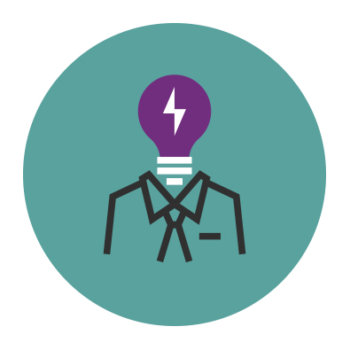
Your company might have a general “new idea” scheme from time-to-time, but typically you won’t get many entries related to compliance and ethics.
Build engagement by featuring exactly what you want: an ethics and compliance-specific game encouraging new ideas and/or building on existing concepts.
Organize the competition into two groups: one for managers and one for employees. This will engage the two populations separately and allow both to speak and present ideas freely. Invite entries from individuals or teams, again, to encourage teamwork where possible. Internally promote the competition and advertise prizes, present opportunities for judging, and give out recognition awards to top ideas.
You may be surprised at the level of engagement and the game’s ability to create genuine company-wide interest for both managers and employees. This compliance activity also serves to identify a number of compliance and ethics issues and opportunities to be considered within the program and with C-level executives.
Ethics Game #6: Team Competitions
Another approach is inter-team, division, or department competitions. The competition can be based on the games above, compliance and ethics-based slogans, characters, taglines, or issues to highlight. Turn it into a competition by offering prizes and getting employees to vote for the winners.
Again, just displaying entries publicly creates a powerful message that comes from a different angle.
Rather than coming from the company, these compliance and ethics topics come from engaged employees, and that’s an important difference.
Ethics Game #7: Case Study Stories
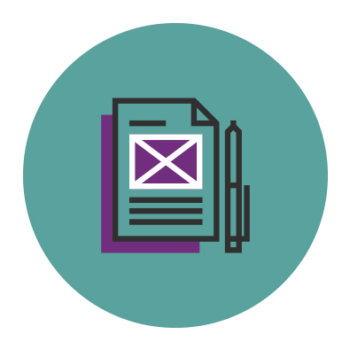
Your company may have a number of case studies that are successful at a practical level, but aren’t grippingly engaging. Try re-working case studies with multiple stages, more immediacy, and bringing in a fuller range of compliance and ethics issues—including the whistleblower’s dilemma and other current topics of interest.
Related: see how our employee helpline can increase employee reporting so you can proactively respond to issues.
As an ongoing compliance campaign idea, you could also use case examples from other companies where compliance and ethics issues have occurred. This angle of “what not to do” shows employees what can happen when ethics and compliance doesn’t come first. Include a “what would you have done” element to increase engagement.
Case study stories not only engage employees, but by progressively releasing stages, they maintain that engagement over time. You may even find that your employees are clamoring for further stages and developments in the case study storyline.

Ethics Game #8: Debatable Dilemmas (including ethics, bribery, and corruption)
Create short, easy-to-read, and debatable dilemmas that showcase some of the most exciting compliance issues including ethics, bribery, and corruption.
Some dilemmas should focus on “pure” compliance and ethics-type issues, while others should link to everyday dilemmas to expose issues like “ethical fade” and “bounded ethicality”.
The goal of this exercise is to encourage dialogue around compliance-related issues.
Creating a dialogue around the dilemma opens up multiple responses from employees and gives them a memory to reference later.
Ethics Game #9: The Compliance and Ethics “Shield”
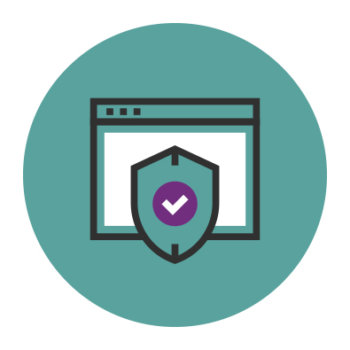
Work with your employers to help define your company’s compliance and ethics “shield.”
This could be in the form of a simple chart-based analysis of the activities, initiatives, etc. that “shielded” your company from trouble and stood in the way of compliance and ethics-related reputational damage.
Ethics Game #10: Compliance & Ethics Heroes
C&E Heroes is your chance as a compliance officer to recognize the heroes within your industry. The heroes could be people who won any of the above games, or they could be someone within your organization who exemplified ethical behavior or exceptional work in the area of compliance. Obviously, you can’t out whistleblowers, but you can reward openness.
This award nomination opportunity facilitates a range of compliance and ethics communications as the competition progresses. Keep compliance at the top of employee minds and incentivize employees to act ethically and within compliance. This can be incorporated with other Compliance and Ethics Week ideas, by hosting the heroes’ award ceremony as the closing activity of your Compliance and Ethics Week.
Other Compliance Activities, Training Games, and Campaign Ideas
While these training games, formats, content, and discussion prompts have proven effective, not every engagement tactic is a slam-dunk. Even though the following activities didn’t work in my experience, they may produce better results depending on application, industry, employee-preferences, and other factors:

See if a board-game style ethics game resonates with your employees Board and Card-Type Games: We experimented with a range of low-cost and locally-produced games for use within teams. While the feedback was broadly positive, the apparent benefits were transient and this ad hoc approach did not appear to deliver longer-term, sustainable benefits. We think the issue was in the physical and practical delivery, not in the concept.
- Word Search and Word Scramble (including Sudoku and Compliance Bingo): We experimented with a range of low-cost word search and word scramble-type games with linked competition and prize. Again, the majority of feedback was positive, but the apparent benefits were transient and it did not appear to deliver long-term sustainable benefit, although the analysis was not easy. A number of employees were experts in this type of game and focused more on it as a competition to win a prize, rather than to increase knowledge of compliance and ethics.
How can you use these compliance activities to get your company excited about ethics and compliance?

While there is a wide range of ways to make compliance and ethics more interesting, there are also considerations to evaluate before choosing the best approach for your company, employees, resources, and goals. Decisions as to if, and how, the activity will be integrated with online, face-to-face, and other pieces of training should be considered. Timing is also important, especially if you’ll soon be rolling out a new policy.
Based on my experience, early planning is essential. The activity’s success may require agreement from stakeholders, which can take longer than originally envisaged. This is particularly true if there’s a potential conflict with other initiatives and obligations.
Whichever methods you choose, carefully plan the entire project, including internal marketing, prizes, research, physical logistics, and digital demands to make the strategy a success at your organization.
Want to keep track of whether these ethics games and compliance activities have had a measurable impact on your employee engagement? You’ll need to have a strong grasp of compliance KPIs. Download our free worksheet and solidify your compliance KPI strategy today.


